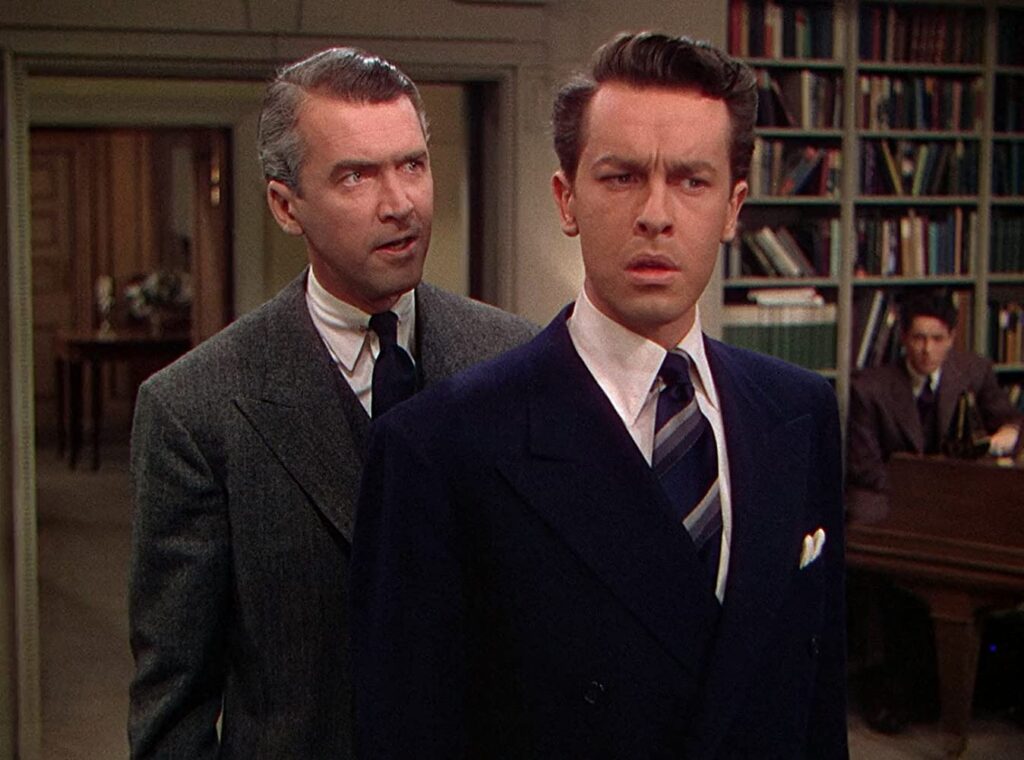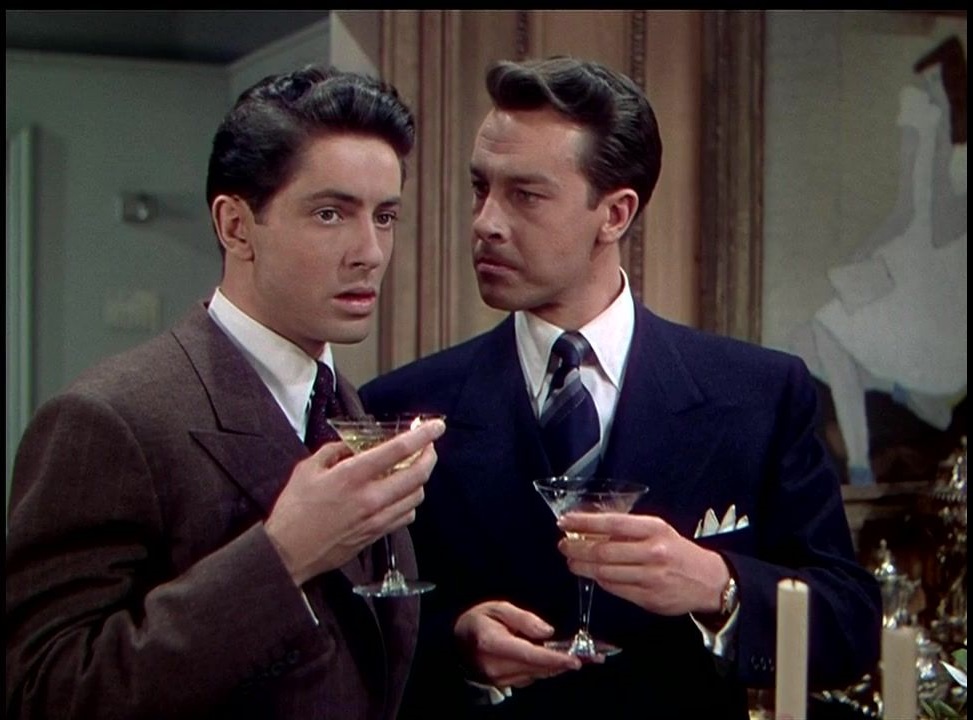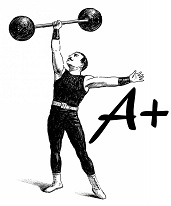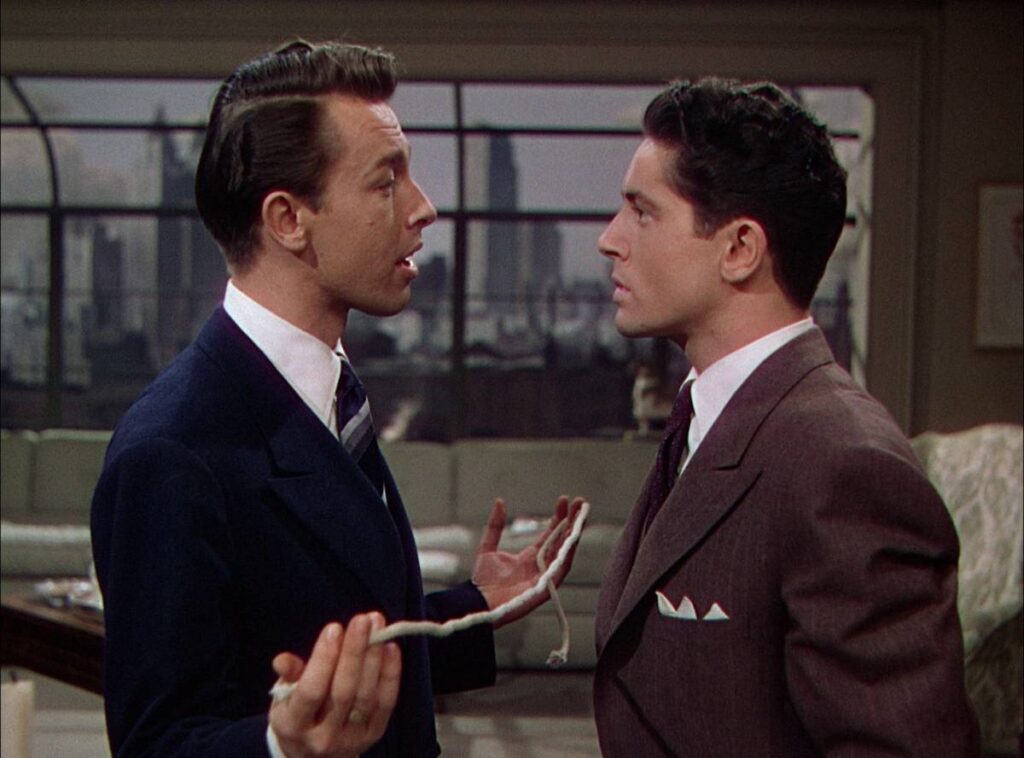There aren’t grisly special effects, nor scenes ripe with gore and senseless body counts. Rather, “Rope” is a perfect slice of suspense, served up by the master himself, Alfred Hitchcock. Shot in 1948, “Rope” was based off a story by Hume Cronyn – himself a Hollywood icon – and delivered with perfection by Hitchcock behind the camera, and a trio of great actors in front of it.
The movie is set in a Manhattan penthouse shared by two overly sophisticated though morally compromised men; Brandon (John Dall) and Phillip (Farley Granger) who have just committed what they consider to be a perfect murder. “Of course, he was a Harvard undergraduate.” Brandon jokes as the body of a former classmate is mercilessly stuffed into an old chest. “That might make it justifiable homicide.”
While each man is on board with the crime of killing for the sake of killing – as long as they are the ones deciding who’s next to go – Brandon is perfectly fine with flaunting his actions like a work of art by hosting a dinner party, with guests including the victim’s father and girlfriend, all with the body concealed out of view in the very same room.

Dall and Granger are phenomenal in their respective roles, and arguably the leading characters of the story. They play off of each other in a perfectly contrasting way. Both love the finer things in life in terms of artwork, music, and social snobbery (picture Frasier and Niles Crane). However Brandon is the more carefree of the two, and the clear instigator in the crime, while Phillip is the timid and immediately remorseful one. The discourse between the pair is done so well, their simple conversation in the immediate aftermath of the caper is an exhilarating display of well written and flawlessly delivered dialogue.
As great as Dall and Granger are, Jimmy Stewart is deservedly one of the best actors in the history of film. Known for his iconic performance in “It’s a Wonderful Life,” Stewart himself has appeared in a total of four Hitchcock films. Here, Stewart portrays Rupert Cadell, a former academic influence on Brandon and Phillip, whose own twisted thoughts on murder served as inspiration for the crime. “After all, murder is – or should be – an art.” Rupert explains to a horrified group of partygoers. There is so much great banter between the two killers and their former mentor – whom they believe would approve of their wrongdoing – the suspense of will someone discovering the body is gut turning.

As is the case with any great film, the behind the scenes work requires as much if not more fanfare, and as per usual, Hitchcock delivers. At a mere eighty minutes, “Rope” is completely done in a real time format. In fact, Hitchcock uses tactics (noticeable for today’s viewers but unheard of for the time) to make the entire movie appear to be a single shot. The reveal of the New York skyline behind the panoramic penthouse windows is a thing of beauty, making the city, as well as the apartment where the entire story is filmed, characters unto themselves. In a subtle touch of brilliance, we begin to see lights turning on amidst the skyscrapers as the evening, and the tension wears on.
With a film that’s 72 years old as of 2020, there is no living member left of the ensemble. It’s a factoid that enshrouds the movie with an ambiguous mythical property that can’t be left unmentioned. Even the props employed in the apartment such as the telephone, gold plated cigarette tin, and artwork are relics of yesteryear.
“Rope” is not a Halloween movie, but a perfect warmup to October. It’s a stunningly shot and perfectly acted piece of film that offers today’s viewer a glimpse of Hitchcock’s raw ability to take something simple and create an everlasting imprint on the world.


